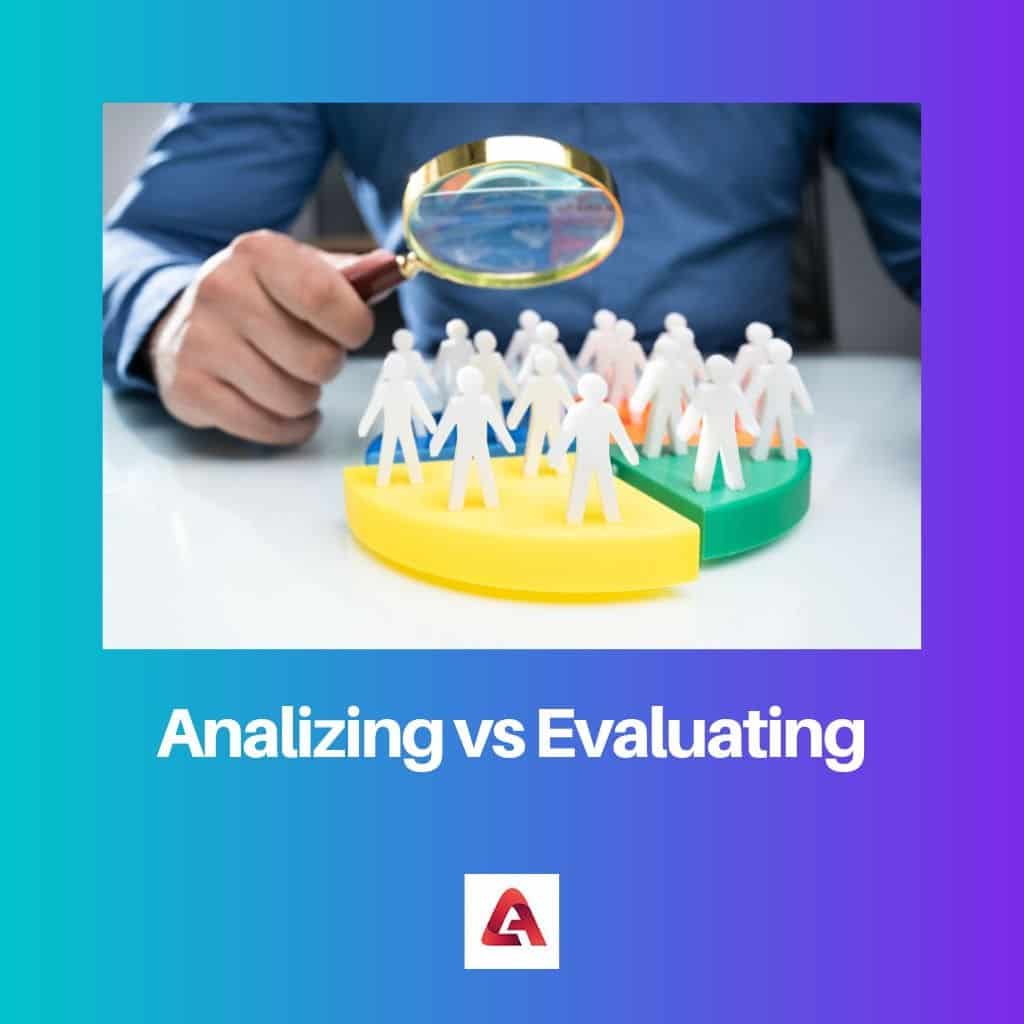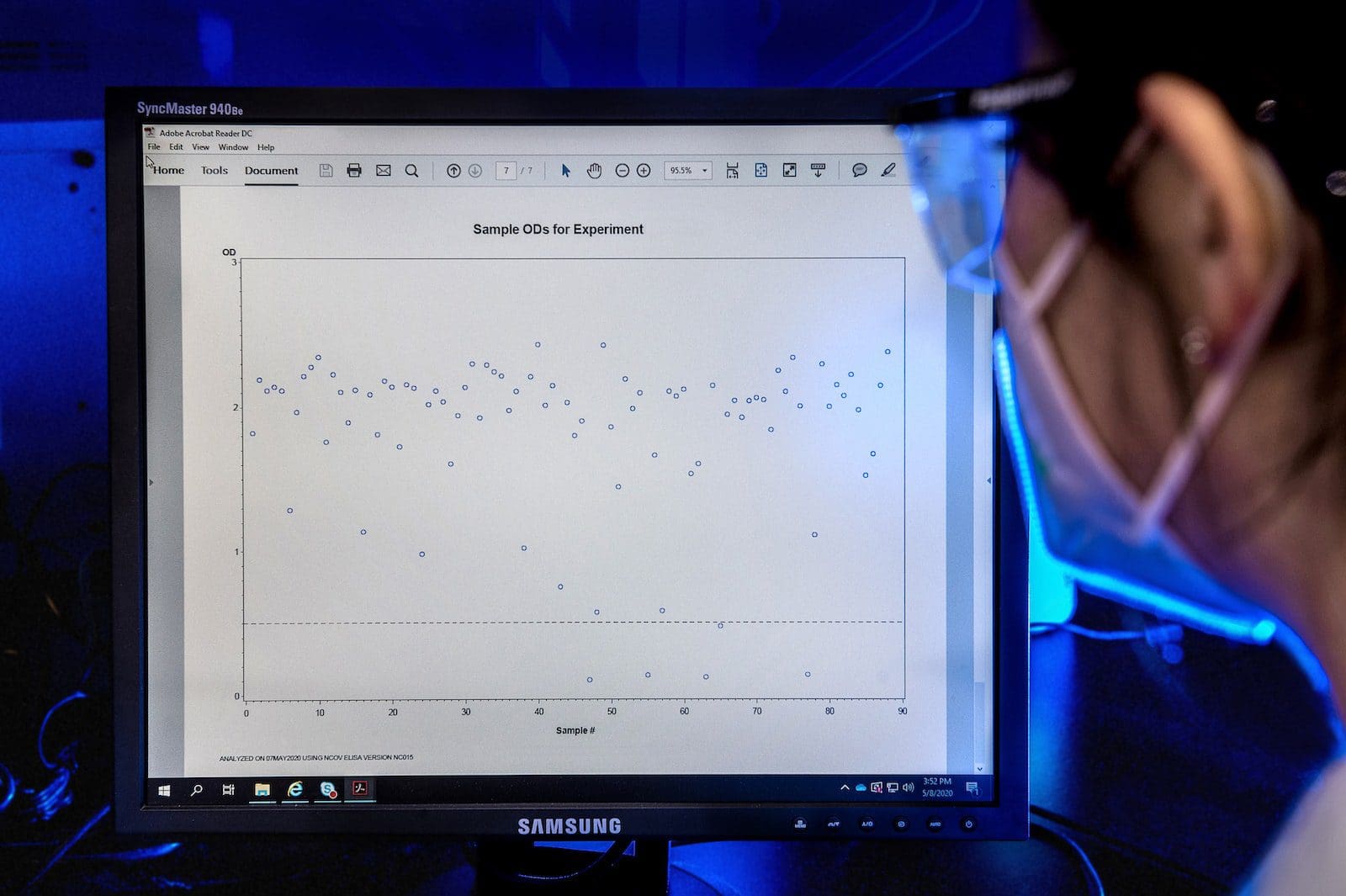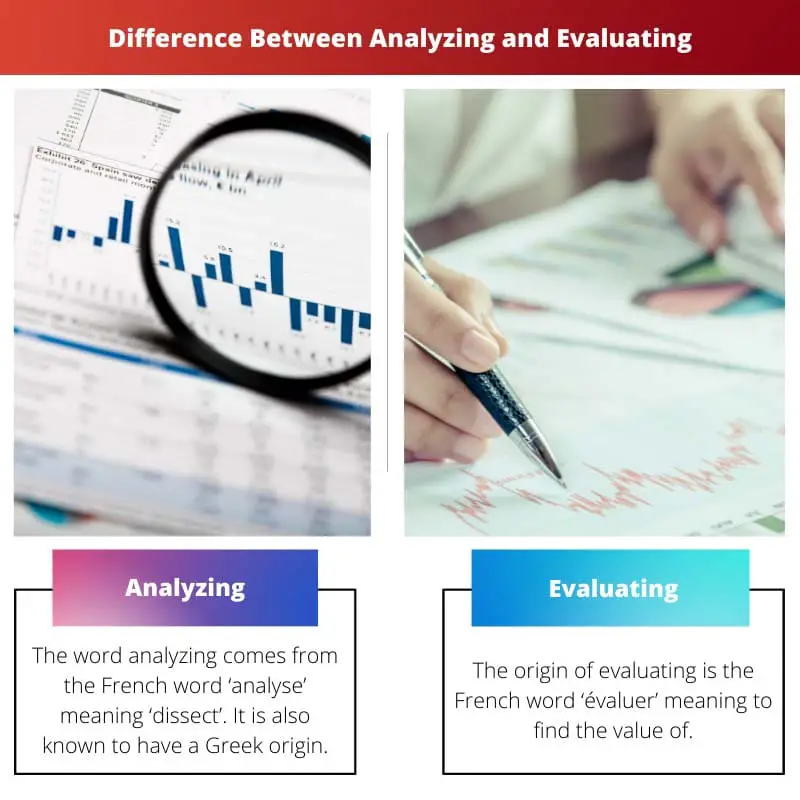
Analyzing and evaluating are two terms that go hand in hand. They are terms commonly used in research and data science or any field that needs to understand and process the given data.
Since they are used together, it becomes difficult to differentiate between the two terms properly. So what is it that makes the two terms different?
Analysis is a crucial step in academic studies, analysis involves curiosity and deep understanding of a problem and interpreting the solution objectively. It involves explaining a phenomenon. Evaluation is relatively subjective which involves reaching a decision about an individual’s capabilities and skills.

Analyzing is breaking down and interpreting the given data. This is used to obtain the data’s factors, effects, and importance.
This requires longer thought processes since the data needs to be broken down for a further explanation. Evaluating is the process that comes after analyzing.
They provide the conclusion or the result of the research conducted on the data. Evaluating data requires fewer thinking skills since it only determines the value and gives a short conclusion.
Also Read: Kharif Crops vs Rabi Crops: Difference and Comparison| Parameters of Comparison | Analyzing | Evaluating |
|---|---|---|
| Data | Studies and understands data | Determines the importance and value of the data |
| Thinking process | Longer and complex thinking process since the data needs to be broken down | It shorter thinking process since it only concludes |
| Concerns | Concerned with the definitions and implications of the data | Concerned with the extent of the quality of the data |
| Association | More associated with objectivity | More associated with subjectivity |
| Utilized | Utilized in academic researches | Utilized to determine the pros and cons of the data |
| Result | Not necessary to obtain a result | The result is compulsory |
The word analyzing comes from the French word ‘analyse,’ meaning ‘dissect.’ It is also known to have a Greek origin.
The process of analyzing is of six types based on the data received. Analyzing explains and develops the data by breaking them into less complex data.
Analyzing not only breaks down the data but also helps to form other data or details from the one broken down. It gives a wider perspective on all the collected data.
This process is the first step adopted by people in the field of research. Therefore, analyzing is a widely used process in research and academics.
Since analyzing involves a lot of complex processes, from breaking down data to explaining it, it involves a more elaborate thinking process. They are also very objective.

The origin of the word evaluating is also different from analyzing. This is because the origin of evaluating is the French word ‘évaluer,’ meaning to find the value of.
So, one can say that evaluating is the process of finding the value of the given data. It also finds feasibility.
Also Read: Percentage Decrease CalculatorIt gives the data quality rather than finding new skills from it. There are two types of evaluating processes: formative and summative.
Formative evaluation is when the data is assessed, and the skill sets required for the data are obtained. Summative evaluation is determining or knowing the goal set during analyzing of the data achieved.
Since evaluating is a conclusive process, this is done after the data is analyzed. It is also associated with subjective thinking and therefore requires less thinking process than analyzing.


I’ve put so much effort writing this blog post to provide value to you. It’ll be very helpful for me, if you consider sharing it on social media or with your friends/family. SHARING IS ♥️
Want to save this article for later? Click the heart in the bottom right corner to save to your own articles box!
Emma Smith holds an MA degree in English from Irvine Valley College. She has been a Journalist since 2002, writing articles on the English language, Sports, and Law. Read more about me on her bio page.